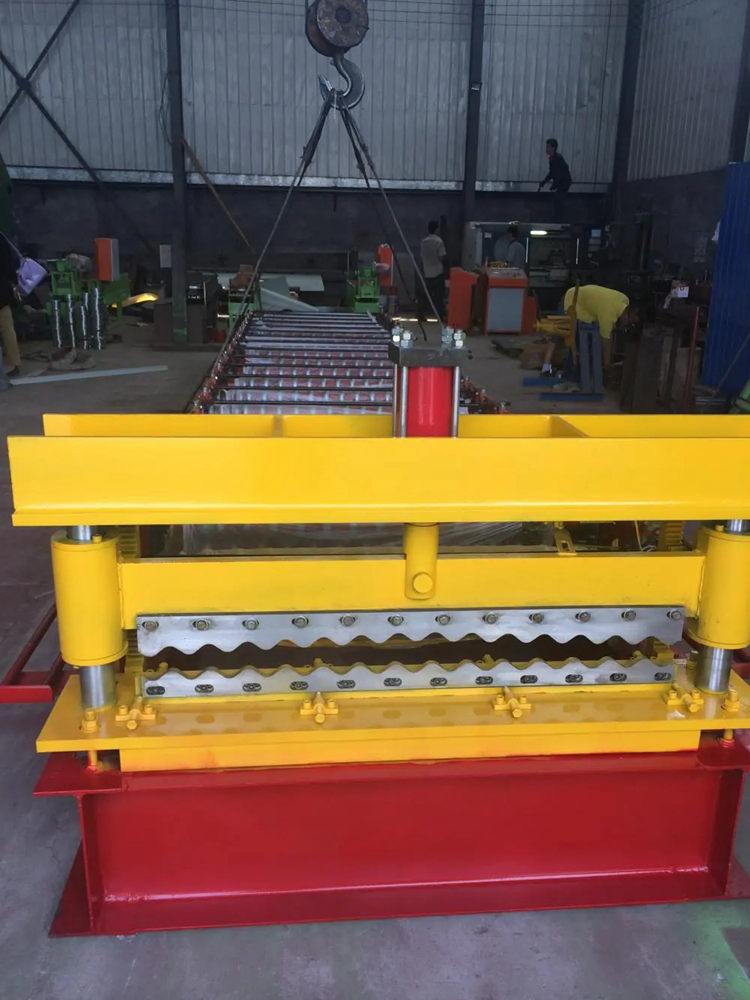Downpipe Roll Forming Machine Revolutionizing the Metalworking Industry
In the realm of metalworking, efficiency and precision are paramount. One of the most innovative advancements that have significantly transformed the industry is the downpipe roll forming machine. This specialized equipment is designed to produce downpipes—essential components used in drainage systems, roofing, and construction. This article delves into the features, benefits, and applications of downpipe roll forming machines.
What is a Downpipe Roll Forming Machine?
A downpipe roll forming machine is an automated piece of machinery that shapes steel or other metal materials into downpipes. The process involves feeding flat metal sheets through a series of rollers that gradually bend and form the material into the desired profile. This continuous process not only enhances efficiency but also ensures that the finished products maintain consistent quality and specification.
Key Features of Downpipe Roll Forming Machines
1. High Efficiency Downpipe roll forming machines operate at a high speed, allowing manufacturers to produce numerous pieces in a short period. This increases output without compromising quality.
2. Precision Engineering These machines are designed to ensure precise measurements for each downpipe, leading to minimal waste and the need for additional adjustments. The use of advanced technology enables the production of pieces with exact specifications.
3. Versatility Modern downpipe roll forming machines can adapt to different material types, including aluminum, stainless steel, and galvanized steel. This versatility allows manufacturers to cater to various market demands.
4. Reduced Labor Costs The automation of the roll forming process minimizes the need for manual labor, which not only reduces costs but also decreases the likelihood of human error, ensuring uniform production quality.
5. Customizable Solutions Many roll forming machines can be customized to produce specific profiles based on client requirements. This is especially important for businesses looking to differentiate their products in a competitive market.
downpipe roll forming machine
Advantages of Using Downpipe Roll Forming Machines
The adoption of downpipe roll forming machines presents numerous advantages for manufacturers
- Cost-Effective Production The efficiency and speed of the roll forming process significantly reduce production costs, making it an economically viable option for manufacturers.
- High Strength and Durability The cold-forming process used in roll forming enhances the strength of the produced downpipes, making them durable and suitable for various environmental conditions.
- Minimal Waste Generation The continuous nature of the roll forming process results in less scrap and waste, contributing to a more sustainable manufacturing practice.
- Improved Product Quality With precision engineering and automated processes, the end products exhibit higher quality and reduced defects compared to traditional manufacturing methods.
Applications of Downpipe Roll Forming Machines
Downpipes are widely used in various industries, including construction, automotive, and manufacturing. In the construction industry, they play a crucial role in effective water drainage systems, preventing structural damage from excessive rainfall. In addition, they are essential components in the roofing sector, ensuring that water flows away from buildings efficiently.
Conclusion
The downpipe roll forming machine represents a significant leap in technology, driving efficiency, accuracy, and sustainability in metalworking. As industries continue to evolve, the reliance on such advanced machinery will undoubtedly increase. By investing in downpipe roll forming machines, manufacturers can not only enhance their product offerings but also gain a competitive edge in the market. The future of metalworking lies in the innovation and automation that these machines bring to the table, laying the foundation for more efficient and environmentally friendly production practices.







